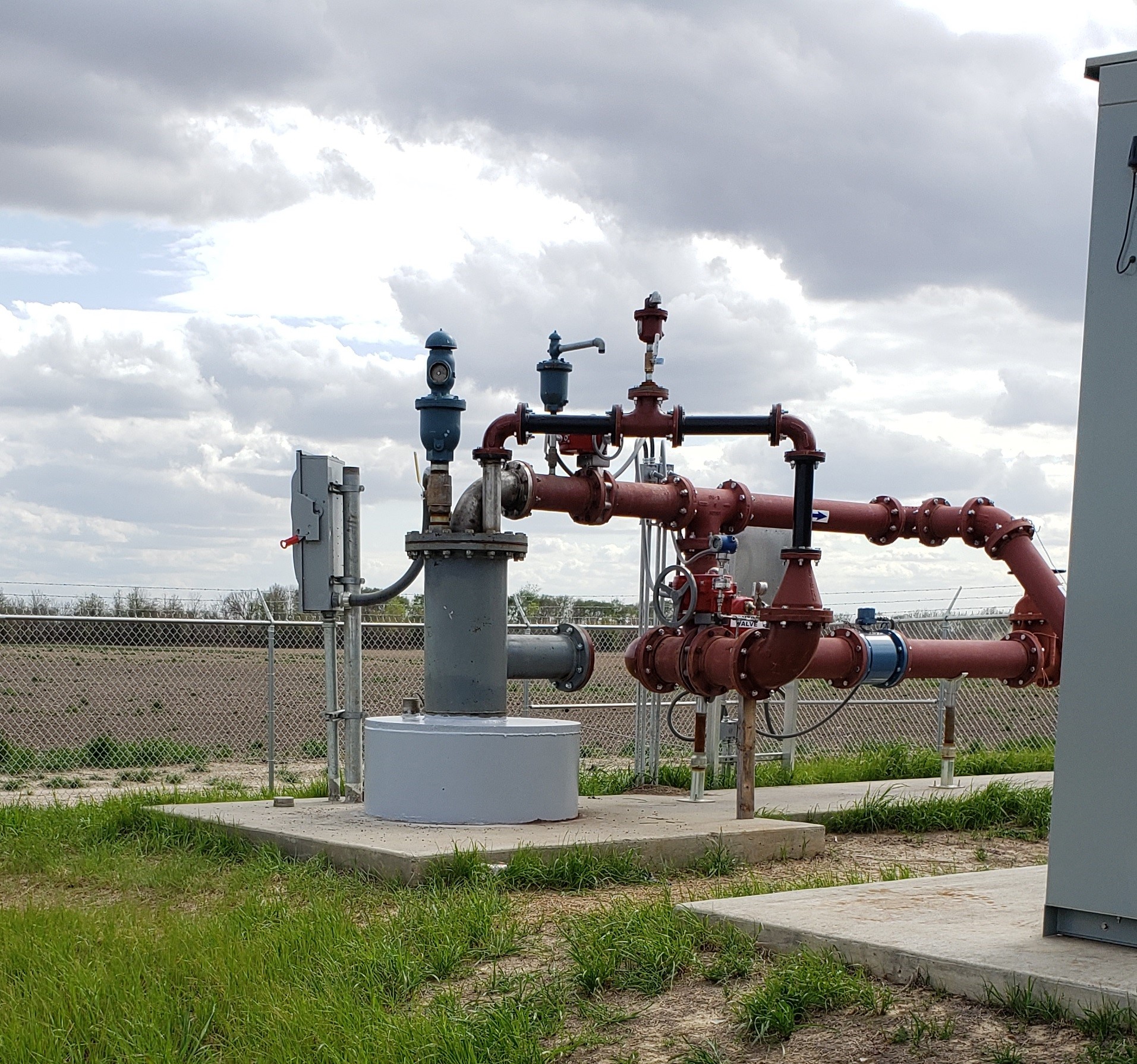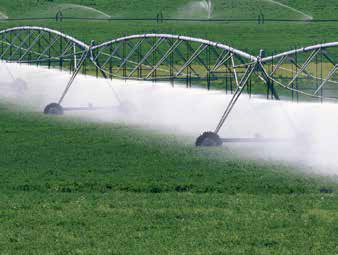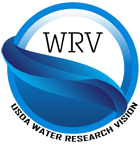ARS has a team of globally-recognized scientists and a network of long-term research stations and laboratories that will facilitate future research into the most critical water challenges.
Water Scarcity and Excess. Sustainable water management requires reliable forecasts of water availability and demand and novel methods to monitor water use at multiple scales. Research efforts will include improving algorithms of hydrologic processes in integrated land-surface and hydrologic models; leveraging new high resolution (spatial and temporal) remote-sensed data sources, open modeling platforms linked to cloud computing, and high-resolution forecast data; and developing alternative water sources.
Weather extremes have become more prevalent with more intense and longer drought conditions and overly excessive rainfall in many regions. This will exacerbate challenges in managing traditional water stores, such as snowpack and reservoirs, and will necessitate new management strategies and alternative storage. These weather extremes require more knowledge of our changing climate and the processes controlling current water sources.
ARS employs new satellite data sources with expanded ground-based measurement networks to supply information at finer spatiotemporal scales and greater accuracy. These new diagnostic datasets will improve representation of physical processes in integrated modeling systems. ARS will continue to lead agricultural water decision-making frameworks that merge new geospatial datasets with high-resolution forecasts tailored to specific growing regions that meet producer needs.
Crop Water Use. Optimal water use at the field scale is critical to water conservation. Knowledge gaps exist in basic plant physiology and the effects of shifting management strategies to address the new realities of increased CO2 and climate change. ARS scientists will continue to lead research in crop response to higher temperatures and CO2 and in modeling this response under different climate scenarios. Transdisciplinary research will be conducted concerning crop water stress which will be facilitated by the extensive network of experimental farms and large datasets at multiple ARS sites including LTAR Network and CEAP locations.
Use of more sophisticated modeling and precise management requires commensurate and new instrumentation development. High-resolution soil and canopy moisture status signatures derived from imagery collected by in-field, drone, aircraft, or satellite-based platforms will be linked directly to autonomous variable rate drip or micro-irrigation systems. Improvements in agricultural forecasts at the microclimate level allow adjustment of current water applications to meet future demands more effectively. New developments will include remote sensed data about crop condition, water use, 3D geophysical measurement of soil properties, and spatially and temporally extensive monitoring of soil water at field and sub-field scales.
Research will link agronomic practices and soil carbon management and will investigate critical questions, such as the effects of irrigation water composition and carbon sequestration on groundwater quality, the potential for microbiological interactions with crops to increase crop resilience, and agronomic effects on soil carbon dynamics.
Groundwater-Surface Water Connections. Much of U.S. irrigated agriculture is dependent on groundwater. While we have historically treated surface and groundwater separately, this division fails to recognize the effects on water tables, streamflow, and irrigation water supply. Effective management of surface water and groundwater resources requires a better understanding of the subsurface pathways linking the two; however, accurate experimental determination and modeling of water and contaminant flows remain problematic due to the complex subsurface environment.
Improved characterization of subsurface soil properties and water flows at multiple spatial and temporal scales will be developed, and new models will improve water and contaminant flows estimates to, from, and within agricultural fields and watersheds. This will lead to enhanced groundwater recharge and sustainability of irrigated agriculture, improved water quality, minimized groundwater depletion, and restoration of ecosystem function.
|
|
Water Quality. Agricultural activities can alter the quality of water entering the water supply leading to serious impairments and affecting human and environmental health. Multiple constituents will require different treatments. ARS will examine preventive measures and remediation strategies to address these challenges in a holistic approach. Previous results concerning the effects of water quality on human and ecosystem health will be used to inform new research efforts.
-
Ensure the viability of irrigated agriculture by preventing salt accumulation in soils by developing novel, advanced desalinization methods from source and drainage waters.
-
Develop technological solutions, including sensors to detect crop nutrient deficiencies or pest infestations and the real-time application of fertilizers and pesticides, to improve the efficiency of agrochemical use by crops and minimize environmental degradation.
-
Improve soil erosion management by broadening understanding of the factors that control and inhibit erosion, including the use of no-till practices and soil conditioners.
Prevent agricultural contaminants, such as particulate matter, sediments, fertilizers, agrochemicals, and new and emerging contaminants, e.g., pathogens, pharmaceuticals, and microplastics, from entering waterways by developing treatment technologies for manures and wastewater.
Managed Aquifer Recharge
Managed aquifer recharge (MAR) is the purposeful recharge of water to aquifers for subsequent recovery or environmental benefit and includes surficial infiltration to subsurface injection. A MAR pilot project combining riverbank filtration and aquifer storage in the Mississippi Delta is underway where the system captures river water through induced infiltration, using natural processes during flow through sandy riverbank and aquifer sediments, to yield high quality groundwater. The withdrawn water is injected into an area of groundwater depletion and stored in the aquifer. Full-scale implementation has the potential to reverse regional groundwater depletion in the Delta, supporting irrigated agriculture and sustaining natural ecosystems.

 |
|
 Water Science Expertise
Water Science Expertise

